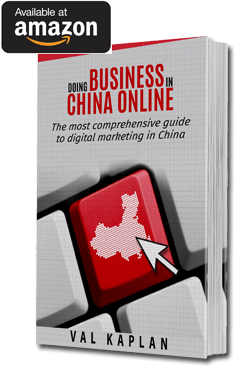Selling to Chinese businesses can be a daunting task, especially for a Western company which is not experienced enough in operating locally and expecting Chinese following the decision making process that is common in North America or Europe. One of the principal differences is the fact that most Chinese businesses are not run in the same structured manner as in the West, which also defines their purchase cycle.
First of all, in B2B settings, many stages of this cycle run concurrently rather than sequentially: request for a quote can be issued before all the potential suppliers are contacted and shortlisted or the spec is finalized. Back and forth nature of the buying process means that, in many cases, a customer expects its suppliers to be a part of the requirement definition and even writing a spec.
At times, this apparently hectic process, may simply look like lack of professionalism, which in some cases may just be the case. This often causes Western companies to become frustrated and withdraw too early, much to the delight of local competitors. First implication of this situation would be realization that persistence and patience are crucial in dealing with Chinese businesses.
Western companies are often viewed as very professional when it comes to their product but not flexible enough to be willing to modify their offers to solve a specific business problem.
Second implication can be defined as an expectation of partnership type of relationship with a potential supplier. Chinese companies regard their suppliers as subject matter experts, those who probably understand the technical need better than anyone else and are willing to provide the most suitable solution to their customers.
Western companies are often viewed as very professional when it comes to their product but not flexible enough to be willing to modify their offers to solve a specific business problem. They are often seen as the type of supplier that can’t be a true partner or a long term solution provider that goes much beyond the sale itself.
Chinese competitors are typically much more aware of this aspect of a purchase decision and are willing to adapt their offer to precisely fit the needs of their customers. Most importantly, provided a local competitor has the solution, they are much more patient in their approach, willing to listen and understand precisely what is expected from them.
What would I advise to a Western company? Based on my own experience, I’d simply recommend to act local – adopt local ways of doing things, never get frustrated and always project your willingness to become a partner, not just another supplier. When you meet your customer, don’t just talk about how great your product is – take time to understand what exactly the problem, that they are trying to solve, really is and then adjust your offer accordingly.
Another advice I’d give is always be willing to help to your customer with your expert knowledge. For example, you could offer to come or send an expert to analyze their process that may help them to solve a specific problem. In my company, we sometimes offer free audits that result in a professionally prepared report that summarizes our conclusions regarding process improvement and recommends solutions. Unsurprisingly, besides of obvious benefit of building trust, such approach may give you plenty of opportunities to steer your customers in the direction that benefits you as a supplier as well.
Always remember that choosing a supplier is almost always about minimizing the risk, therefore building trust is the sure way to accomplish that.




